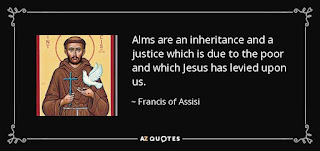CHRIST IN WINTER: Reflections on Faith & Life for the Years of Winter—LENTEN JUSTICE M, 2-26-24]
I resent Lent and its emphasis upon the spiritual disciplines, because it makes undisciplined people like me feel bad. I’m good for prayer and Bible reading and meditation and such maybe one day out of forty, certainly not forty days in one stretch. So I justify my lack of discipline by portraying Lent as individualistic navel-gazing that neglects Jesus’ emphasis upon Christian fellowship and caring for the less fortunate.
I rant, [usually where others can’t hear, because I’m a preacher, and we are supposed to be the wagon masters of the Lenten journey, so I don’t want to be the cause of somebody else “forgetting” to be disciplined]: “If the purpose of Lent is to get ready for the resurrection, how are you going to face the resurrected Christ when all you’ve done is look at yourself for forty days, as in a glass darkly?” [I’m very proud of myself when I can justify my narrow-mindedness with a well-crafted sentence.]
Even alms giving, the one thing about Lenten disciplines which involves other people, is an individual act, isn’t it? Well, not really.
Alms giving in the Bible is not just about giving to the poor, feeding the hungry. It is about restoring justice. The Hebrew word for alms is sadaqa, which means justice or righteousness. Giving to the poor helps establish the right social order—justice.
The problem with alms giving is that it can easily go awry when it is face-to-face. Personally, I prefer to send a check to UMCOR than to give something personally to a needy person. I don’t want to see the smiles on the faces of the poor when they reach out for some pittance that I have gotten through an unjust economic and political system, one that favors tall straight white men.
When Helen and I directed Rankin Community Center in Dallas, while I was a Perkins School of Theology student at SMU, we had a volunteer who insisted on being in on any aid distribution to our people. “I just love to see their faces when I give them something,” he exulted.
It was all about him, and his feelings. Poor people were just objects to feed his ego. They didn’t remind him how fortunate he was; they reminded him how superior he was.
Recently some friends were shocked to learn that I like peanut butter and cheese sandwiches. Velveeta, even. They had never heard of such a thing. But those sandwiches are a natural result, I think, of growing up on welfare.
In addition to $80 per month cash [about $900 in current dollars], from time to time we were given excess farm commodities, that stuff the government buys from farmers to prop up the agricultural economy. There were huge long blocks of very dry Wisconsin cheese, and huge glass jars of very runny Alabama peanut butter. We could moisten the cheese with the peanut butter juice. It restored sandwich justice.
As a welfare kid, I received handouts from time to time. I could tell when a person was trying to restore justice to me, and when they were just doing it for the kick they could get out of it. Government peanut butter and cheese were good things. No government officials came around to watch me eat those sandwiches, so that they could get their kicks by looking at my smeary smile.
The oft-pilloried “welfare” restores justice. Personal handouts are often humiliating, reminders that we should be grateful to people who are our “betters” rather than fellow-citizens.
Does that mean we shouldn’t volunteer at the soup kitchen or the homeless shelter? Of course not. I have done a lot of that through the years, and would still were I physically able. But I must remember that justice is not about me. As we give our alms, let us remember that we are not just helping the less fortunate; we are restoring justice. We are getting ready for the resurrection of the Christ who says, “In that you do it to the least of these, my brothers and sisters, you do it to me.” [Mt. 25:31-46.]
John Robert McFarland


No comments:
Post a Comment